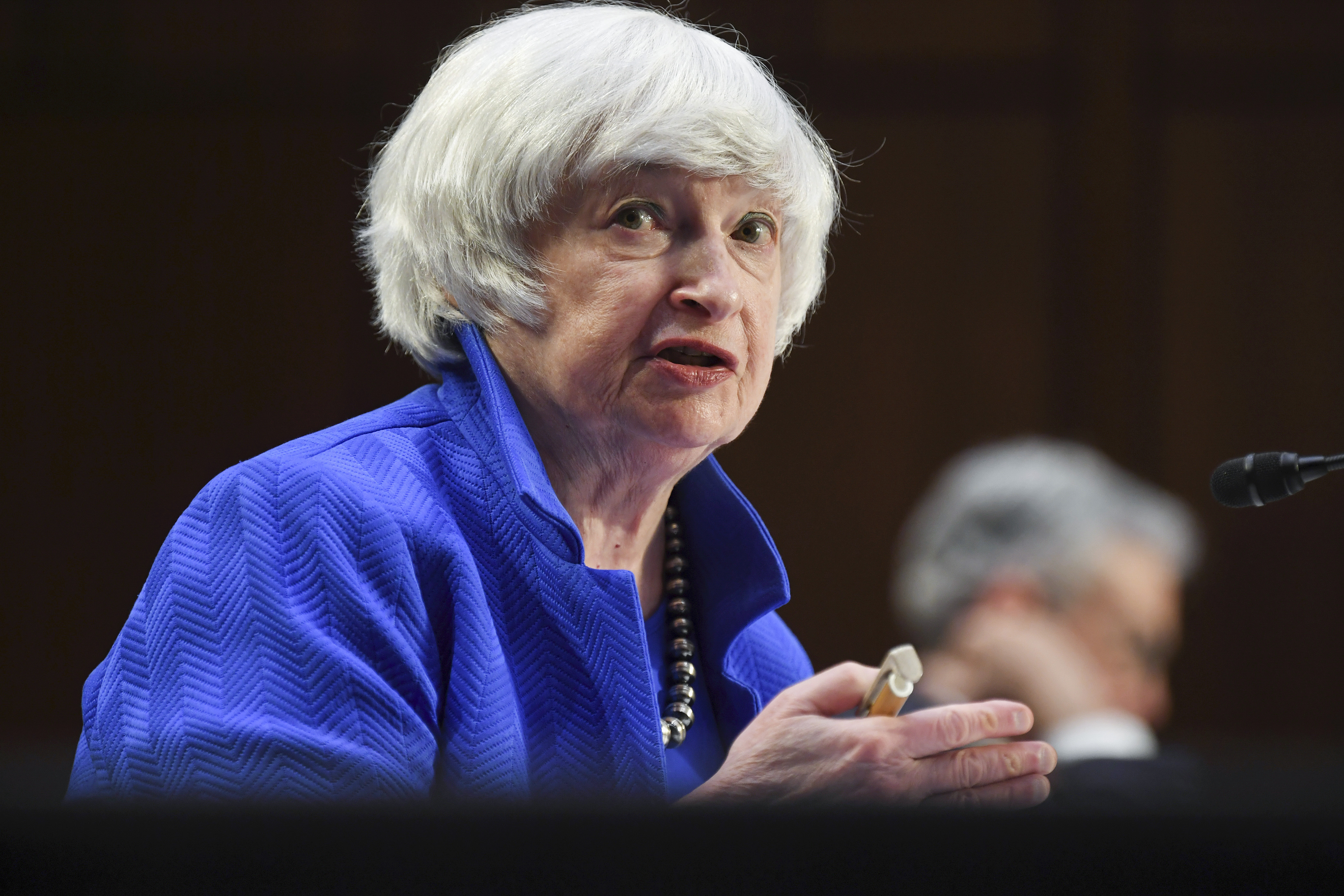
United States Treasury Secretary Janet Yellen and Chinese Vice Premier Liu He discussed economic issues including international trade and supply chains, as the Biden administration considers lowering tariffs on Chinese goods to tame soaring inflation.
In a virtual meeting with her Chinese counterpart on Tuesday, Yellen “frankly” raised concerns about China’s “unfair, non-market” economic policies and Russia’s war against Ukraine, the US Treasury Department said in a statement.
The two sides also discussed the global economic outlook amid rising commodity prices and food security challenges during the call, which the Treasury Department described as “candid and substantive” and part of efforts to “maintain open lines of communication”.
“The comments from Yellen don’t seem to go much beyond what US officials have said previously,” James Laurenson, director of the Australia-China Relations Institute, told Al Jazeera.
“The issue is what the US is going to do beyond just repeating the same accusations. Plenty of trade law scholars argue there’s considerable scope for seeking redress at the WTO but the US seems unenthusiastic towards the institution. But more unilateral sanctions won’t change Chinese policies and nor will they win the US plaudits even from close allies like Japan and Australia, who remain committed to the WTO and its processes.”
Following the call, China’s Ministry of Commerce said the “pragmatic and frank” talks touched on the macroeconomic situation and the stability of global supply chains.
China also expressed concerns about US tariffs and sanctions against Chinese firms, the ministry said, adding that both sides had agreed to continue dialogue.
“As the global economy faces grim challenges, there is a great significance to strengthen the communication and coordination of the macro policies between China and the United States,” the ministry said in a statement.
“Safeguarding the stability of global industrial chains and supply chains will serve the benefits of China, the US and the whole world.”
The talks come as US President Joe Biden weighs the possibility of easing tariffs on Chinese imports as part of efforts to control soaring prices, which are rising at their fastest rate in more than 40 years.
Biden’s cabinet is reportedly split on whether to ease tariffs, some of which were inherited from former President Donald Trump, who took aim at what he viewed as unfair Chinese trade practices.
Yellen has publicly pressed Biden to reduce some tariffs, arguing they make “no strategic sense” and are “paid by Americans, not by the Chinese”.

Deborah Elms, founder and executive director of the Asian Trade Centre in Singapore, described it as a positive that officials from the world’s two largest economies are continuing to meet.
“There is no way to manage tensions if communication is handled through the media rather than in person, or via Zoom,” Elms told Al Jazeera.
“The US administration line on China has been, and will continue to be, that China practises unfair trade. Therefore, it’s not a surprise to have Yellen repeat the statement. The big question, of course, is what can be done about it. Having discussions is a useful first step but will need to be followed up with more than random conversations between government officials.”
At the G7 summit in Germany last month, US national security adviser Jake Sullivan said Biden and Chinese President Xi Jinping were expected to hold talks in the coming weeks.
Gary Ng, a senior economist at Natixis in Hong Kong, said the US and China are unlikely to veer from their growing rivalry despite dialogue or reductions in tariffs.
“While it is possible to see a rollback of tariffs on some products, the US remains concerned about the role of government subsidies and the progress of achieving competitive neutrality for its firms in China,” Ng told Al Jazeera.
“These are structural issues on whether the US firms are treated equally versus the Chinese counterparts with spillover effects not only in market access in China but also the competition in the world. The dialogue may boost short-term sentiment, but it is in no way a U-turn of the strategic competition between the US and China.”







